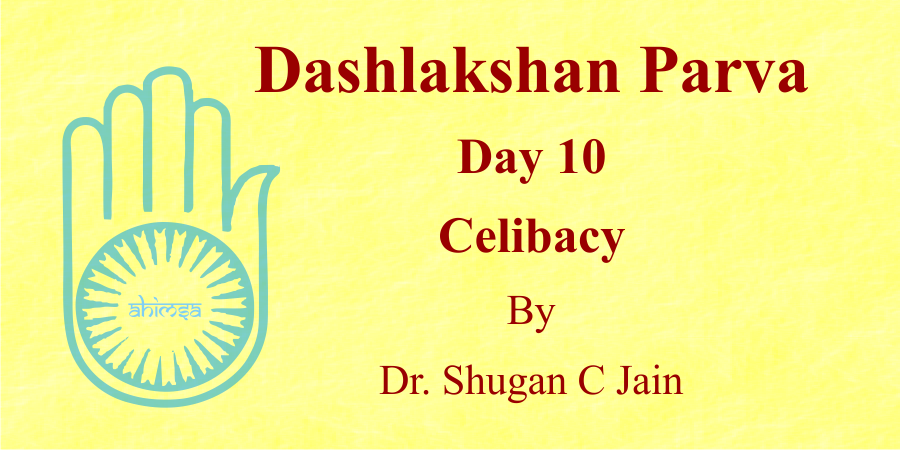The word brahmacharya is derived from the word brahm – pure soul within and charya – to dwell or be immersed in its experience. It is like pure meditation or samadhi. Only by residing in the soul makes us the master of ourselves and the Universe and enjoy lasting happiness. Our outward orientation makes us a slave to desires. Jain ascetics, both male and female are supposed to observe complete celibacy, i.e. neither marry nor have contacts nor meet the opposite gender in lonely places to abstain from sexual arousals. Most religions, in one form or the other, prescribe practicing limited celibacy. Such practices provide us more strength and opportunities to use our energies for focusing on activities that lead us to enjoy a happier life ourselves and enhance social wellness.
On the other hand, householders are directed to observe partial celibacy. It implies observing purity in relation with others to maintain and enhance happiness. A man should regard other women as mother, sister, and daughter according to their age. Similarly, a woman should regard other men as a father, brother, son according to their age. The practice of partial or full celibacy is generally due to religious vows to enhance religious practices or accepted personally. Practitioners of partial celibacy are required to be content with their married spouse for meeting their sexual urges. Avoiding toxic foods, overeating, watching lustful movies /TV programs, and recollecting past enjoyments are some of the ways which help us observe celibacy.
Non-observance of partial celibacy, though appearing old fashioned, leads to increased social and health problems like the spread of rapes and associated killings, sexually transmitted diseases like HIV, family break-ups etc.

